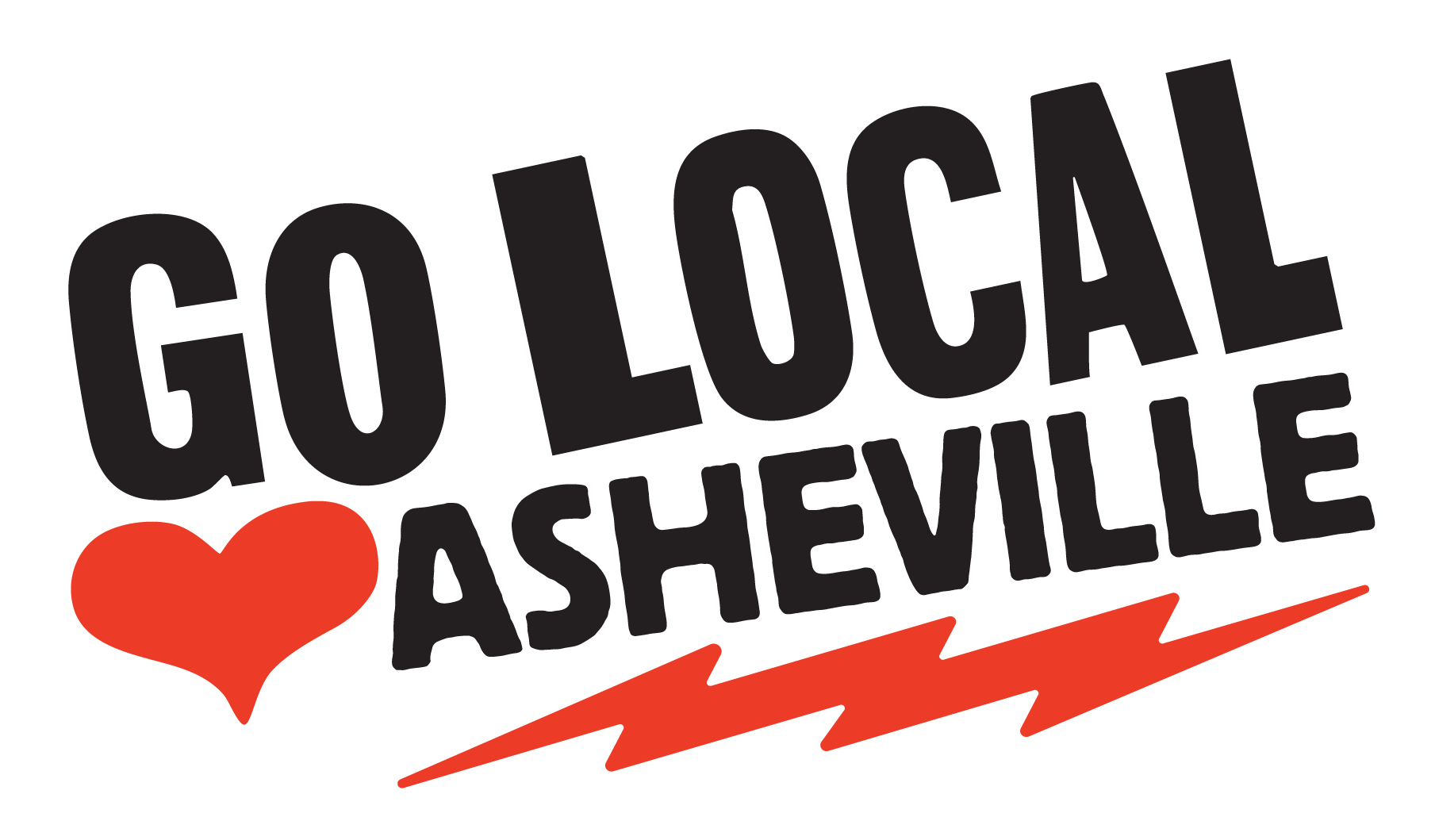Dear Localists,
“What is happening to our downtown?” This is the top question I get from many of you these days. I wanted to pen some thoughts that hopefully help put things in perspective.
In 2009 Urban Outfitters arrived in downtown Asheville. With already a few chains in the central business district, concerned parties came together and formed the Asheville Grown Business Alliance. We wanted to create awareness around the importance of supporting and growing a healthy and strong local economy while preserving the uniqueness of our downtown.
After years of scoping Asheville out, UO’s sister store, Anthropologie recently made a serious offer on the space where K2 Studio is located, on the corner of Lexington and College. Luckily, our neighbor, Kim Hubbard, the owner of the 22 year old business has 8 years left on her lease, most businesses don’t. Instead, Anthropologie opted for a lease down the street beside the Lexington Avenue Brewery.
Jamee Haley, the Executive Director of Lowcountry Local First in Charleston, SC recently wrote this about their experience with chains moving into King St. in their downtown:
“Every time one of these national chains comes to the area they cause the market rate for commercial property to escalate, driving up the cost for local business owners and driving them out of the city. Additionally, they often are willing to take a loss in sales just to have a presence on King Street. We no longer have businesses that serve the needs of the community that lives downtown (salons, shoe repair, dry cleansers, corner stores, hardware) and even the legacy businesses are selling because of rising property taxes and deals that are just too good for them to pass up.”
“We recently had an empty lot downtown that sold a year ago for $1.5M and this year was sold for $8M, the only way to make money on that acre is to put in luxury condos or a hotel. Additionally, we are dealing with absentee landlords who are not invested in our place and are unresponsive to the needs of their tenants. National businesses take up a large foot print and create large retail spaces that are hard to fill once they leave.”
Sound familiar? Six new hotels are coming to downtown Asheville. This, combined with an increase in the hotel tax means Asheville will see a marked surge in tourism promotion, without significant improvements to our infrastructure. While property and sales tax revenue will increase what will downtown look like in 20 years and who will be shut out? Are we “planting the seeds of our own decline“?
Studies show that by supporting and growing locally owned businesses we create a stronger, more resilient and fair economy. Every dollar spent in a locally owned business returns 3x more to our local economy than one spent at a chain. Out of the 1,448 businesses in the 28801 zip code 88% have less than 20 employees and 55% have 1-4 employees. Yet, there is nothing in place to protect these businesses. Our local businesses define the vitality of downtown and it would be a tragedy to lose them.
It is critical that we find a way to keep downtown special and preserve businesses like Kim’s. Our downtown is distinctly different than the mall or outlet shopping centers and this is a huge part of our draw to both locals and tourists alike. Many of our local businesses would have a competitive edge if the playing field was level.
People who purchased property between the 70’s and 90’s are the ones who have designed, nurtured and fought for Asheville’s organic growth. Some realized the value of keeping units affordable for a mixture of uses and many started small businesses of their own in these buildings. Unfortunately, we have lost some of these visionaries and others have retired, divested or passed their property on to sons and daughters. The property value is now too high for many locals to afford to purchase. While increasingly, developers from outside our community scoop up some of our most historic buildings, fewer locals venture downtown anymore.
Pair all this with our critical, city-wide lack of affordable housing and struggling public schools. 20.4% of our population is below the poverty level and a third of jobs pay less than $25,000/yr. Rentals are at a 99.1% occupancy rate. Asheville’s controversial Air BnB listings are growing at about 60 units per month while over a quarter of our homes are second residences.
As you can see, this is not just about the fate of downtown Asheville. Cities across the nation are experiencing similar struggles. Neighborhoods like the River Arts District, West Asheville even Black Mountain should keep a keen eye on how downtown shifts in the next 5 years. As Asheville evolves, we ought to put measures in place to protect and grow our local businesses, retain and strengthen all of our neighborhoods and their cultural significance and institute ways to democratize our wealth. We must put our locals first.
A Little History
In 1980 the city of Asheville in partnership with a private developer Strouse, Greenberg & Company out of Philadelphia made plans to purchase and demolish 11 city blocks. They would raze 85 buildings, eradicate 125 businesses, 2 nonprofits and displace 487 jobs. Their vision was a 700,000 sq.ft. shopping mall, parking deck, office tower and hotel on over 22 acres of downtown funded jointly by developer and taxpayer money. A group of concerned residents, business and property owners formed Save Downtown Asheville to fight these plans.
The commercial development was set to build three major department stores, mall shops, a fast food center and a 300 room hotel. The goal was to become the convention mecca of North Carolina. Raleigh required a referendum and, luckily, the voters responded with a resounding 66 percent NO.
35 years later downtown Asheville has become a different sort of mecca. We have grown into a downtown rooted in community and at our core lies our independent businesses. Slowly, over time thousands of residents, small business owners, local property owners and civic leaders shaped and grew the unique culture of downtown Asheville. We put our earnings right back into our local economy. Our fear is that we are facing exponential growth at the cost of losing our unique culture and access to community wealth.
What Can We Do?
Make your voice heard! If you’re concerned please sign and spread the petition created by the owner of Adorn Salon and Downtown Commissioner, Rebecca Hecht. We want your thoughts and ideas.
Attend any public hearings or meetings on this issue. Share this newsletter! We’ll use it to let you know of important dates, meetings and developments.
Help us study solutions. There are other communities taking interesting measures to strengthen their local economy. These are just a few ideas and examples:
San Francisco put a cap on the size of stores allowed in a neighborhood district. Quite a few others have as well. This is an excellent toolkit that explains the why, what and how.
In Utah the state in partnership with city and county governments, Local First Utah and a local bank created incentives for property owners to sell to local businesses over outside entities.
In 2004 Portland Oregon unanimously passed a Local Business Initiative Resolution.
Richmond, VA created an Office of Community Wealth Building specifically to study and implement these types of ideas.
Ownership Matters
Many cities are beginning to realize the power worker cooperatives have to democratize wealth and ownership. NYC just invested $1.2M into incubating worker coops. The City Council of Austin, Texas passed a resolution supporting the development of cooperative businesses. Evergreen Cooperatives in Cleveland, OH came out of a city-wide local economic development initiative. Jackson Mississippi’s former Mayor helped launch Cooperation Jackson via his Chokwe Lumumba Center for Economic Democracy and Development.
Minneapolis, MN & Sangudo, Alberta Canada have both established real estate investment cooperatives and are inspiring other cities to do the same.
The Democracy Collaborative is collecting a growing list of cities including Durham and Greensboro implementing solutions to broaden their community wealth. We would love to see Asheville at the top of this list.
Stepping It Up
Until now, Asheville Grown has been a volunteer effort for me. I’ve barely been able to keep up with this movement as our community has helped it to thrive. Starting this month I am cutting back on my hours at the 20 year-old shop I co-own downtown, Hip Replacements Clothing, and will dedicate my energy full time to the Asheville Grown Business Alliance.
I am asking you to please support our work.
On September 25th & 26th we are hosting the first annual Venture Local Fair. For the conference on Friday we’re bringing in Stacy Mitchell, Senior Researcher for theInstitute of Local Self Reliance and author of Big Box Swindle. Check out her inspiring TEDx Talk: “Why We can’t Shop our Way to a Better Economy”. We will also feature leaders from our community and others working to democratize ownership and build stronger cities.
Early bird tickets just went on sale!
On Saturday the 26th we’ll close off both Buxton and Banks Avenue in the South Slope of downtown Asheville and host a street fair with over 100 local vendors free for all to attend. Makers, artists, collectors, musicians, chefs, brewers, entertainers and inventors will magically transform the streets into a bustling, family-friendly, mini-city of discovery. Come join the festivities and if you have a local business, please consider joining our growing list of sponsors.
We’re also gearing up for the 2016 Go Local Card. If you have a locally owned independent business join over 400 that have committed to better public schools and community wealth for all. If you are a concerned local, please purchase one. This card simultaneously supports our public schools and the local movement as the health of both is inextricably related.
We want this discussion to continue and bring all locals to the table.
How can our community rise up?
Can we move through change with grace and personal commitment to
intentionally preserve the heart of Asheville?
Real prosperity begins at the local level.
With love for Asheville,
Franzi Charen
Director
Asheville Grown Business Alliance




Facebook
Follow usInstagram
Follow us